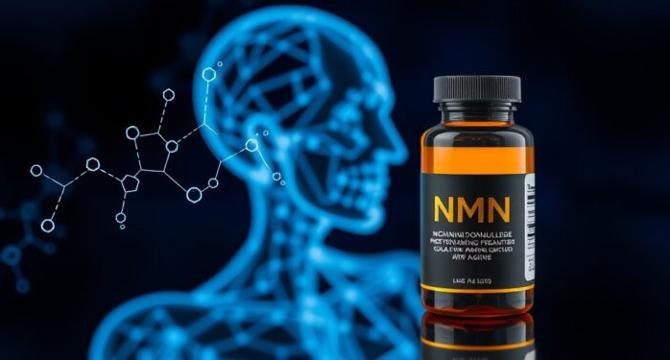Bioengineer
2w
146

Image Credit: Bioengineer
Nicotinamide mononucleotide (NMN) as an anti-aging health product
- Nicotinamide Mononucleotide (NMN) has emerged as a beacon of hope in the quest for longevity, capturing the attention of both consumers and scientists.
- NAD+ levels decline with aging leading to reduced mitochondrial energy production, oxidative stress, DNA damage, and cognitive impairments collectively referred to as age-related complications.
- NMN, a precursor to NAD+, has demonstrated potential to mitigate these age-related complications by replenishing NAD+ levels.
- Animal studies have elucidated NMN's ability to enhance mitochondrial function, reduce inflammation, and improve insulin sensitivity.
- Early clinical studies have reported promising results regarding NMN’s bioavailability and short-term safety, but concerns remain around high-dose administration and long-term implications.
- NMN's therapeutic potential spans a wide array of conditions, including mitigating Alzheimer’s pathology, restoring mitochondrial bioenergetics, and reducing oxidative stress.
- The absence of stringent approval processes exposes consumers to unverified claims and prompts calls for stricter standards to ensure the safety and efficacy of NMN products.
- Emerging evidence suggests that NMN’s effectiveness is mediated through its impact on sirtuin activity, mitochondrial function, and oxidative stress regulation.
- While NMN’s pharmacological benefits are promising, its safety profile warrants thorough investigation.
- The scientific community’s consensus emphasizes the urgent need for rigorous clinical trials to evaluate NMN’s efficacy and safety.
Read Full Article
8 Likes
For uninterrupted reading, download the app